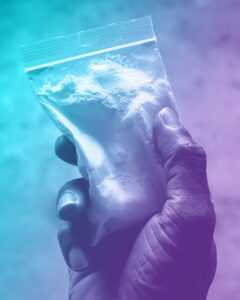Cocaine Side Effects
When we think of cocaine’s prevalence in the world, we can often picture Hollywood stars. Some, such as Chris Farley and Whitney Houston, indulged a little too heavily and sadly lost their lives. But for many, such as Drew Barrymore, Tim Allen, and Robert Downey, Jr., recovery from cocaine was possible and they were able to reap the rewards of sobriety.

and A rise in cocaine-related deaths was noted in 2017 in Hillsborough County, Florida. Clean Recovery Centers is making sure to shed light on substance misuse and continues to be at the forefront of addiction treatment. How bad can cocaine be? What are the side effects of cocaine addiction? Let’s explore this further.
The Influence of the Method of Cocaine on Drug Effects
Cocaine’s effects can vary depending on the route of ingestion. Cocaine can be snorted, rubbed on the gums, swallowed, or injected. In crystal form, known as crack, it can be smoked or added to other substances that can be smoked. These different methods of intake can affect how fast cocaine works in the body and how long the side effects last.
Snorting cocaine is one of the most popular routes to use. The onset is slower compared to other methods but the “high” can last between 15 and 30 minutes. It is absorbed through the lining of the nasal passageways where it enters the bloodstream.
While rubbing cocaine on the gums produces similar results to snorting, swallowing cocaine will result in the slowest onset. Taking around 20 minutes to “kick in,” the effects of cocaine are more delayed when swallowing than with any other method of intake. This is dangerous as people will swallow more thinking the substance is not working, increasing the risk of overdose.
Injecting cocaine heightens its effects but does not make them last longer. Also similar to smoking, injected cocaine effects last around 15-30 minutes. There are more dangers with injection, such as contracting HIV/AIDS or hepatitis from sharing needles.
Smoking crack is the fastest way to get the substance in your system, but the effects are very short-lived. Lasting only 5-10 minutes, this method encourages binging behavior in order to keep feeling the euphoric effects.
Timeline of Cocaine Side Effects
Cocaine is a very fast-acting substance. The effects will be felt almost immediately but last less than an hour. Depending on how long someone has used and the amount taken will affect how long cocaine stays in the body. Common side effects include:
- Extreme bouts of energy
- Hypersensitivity to sound, sight, and touch
- Paranoia with increased distrust of others
- Mood swings such as happiness or irritability
- Decreased appetite
While these effects appear quickly and dissipate fast, others can linger for a few hours. The longer someone uses cocaine, the more they must take in order to achieve the same feelings. Additionally, the longer someone uses cocaine, the more susceptible they are to cocaine dependence.
Short-Term Effects of Cocaine Misuse
Some of the short-term effects of cocaine misuse include:
- Headaches
- Heart attacks or strokes
- Irritability
- Weight loss
There is no timeline for when a heart attack or stroke will occur. Even just one dose of cocaine to a first-time user can trigger one of these events. For those who have heart conditions like high blood pressure or heart disease, it is best to avoid cocaine altogether. Cocaine affects the body in more ways than just the heart and brain, such as the kidneys and bowels also.
Long-Term Health Effects of Cocaine Misuse
Some long-term side effects of cocaine addiction include:
- Malnourishment
- Movement disorders such as Parkinson’s
- Seizures
- Loss of sense of smell
- Chronic sinus infections
- Bowel damage
Cocaine’s Effects on the Body and Mind
Cocaine and crack work in the brain by releasing the neurotransmitter dopamine. This is the reward chemical, and when cocaine activates it, feelings of intense pleasure and euphoria are released. Over time, the brain becomes accustomed to these feelings and begins to reduce the amount of dopamine transmitters. This requires more cocaine to receive the same results. As a result, the body and mind feel intense negative feelings when cocaine is not in the system.
Physiological Side Effects of Cocaine Misuse
The physiological side effects of cocaine often take the biggest toll. They include:
- Anxiety
- Irritability
- Depression
- Cravings
- Paranoia
It is very important to seek help from family, friends, or medical professionals if depression or paranoia symptoms become severe. Thoughts of violence, self-harm, or suicide can become overwhelming and result in dire consequences.
Physical Effects of Cocaine Addiction
 Cocaine restricts blood vessels, which can cut off blood flow to certain areas. In the sinus cavity, the loss of blood flow can cause permanent damage and make breathing difficult. When swallowed, the intestines experience blood loss and damage. Rashes or skin lesions can also form due to the lack of blood flow and reactions to different cutting agents.
Cocaine restricts blood vessels, which can cut off blood flow to certain areas. In the sinus cavity, the loss of blood flow can cause permanent damage and make breathing difficult. When swallowed, the intestines experience blood loss and damage. Rashes or skin lesions can also form due to the lack of blood flow and reactions to different cutting agents.
Get Help with Cocaine Addiction Treatment
Managing cocaine use disorder takes a toll on the body, mind, and spirit. Finding recovery can help you or a loved one get life back on track. At Clean Recovery Centers, we have helped hundreds of our clients get clean, live clean, and stay clean. Our cocaine addiction treatment includes inpatient, residential, and outpatient services. An initial assessment will be done to see which option will work best.
Cocaine Detox
While a medical detox is not always needed for cocaine, the staff at Clean Recovery Centers can address any physical and mental concerns. Physical withdrawal symptoms can be managed with over-the-counter medications. The main key is to have a strong support system, which can begin in group therapy at Clean Recovery Centers. Cocaine cravings can last months and even years and having people to talk to can make a big difference in preventing relapse.
Residential / Inpatient Rehab Services For Drug Dependence
There are two stages to our residential treatment program.
Residential One – This is part of phase one of the treatment program. Individuals are in a 24-hour, 7-days-a-week, live-in environment. Medical support is available if needed, but the main focus is on individual, group, and family therapy. The length of stay in this treatment phase is 3-4 weeks.
Residential Two – This is where the transition to phase two happens. Phase two is the action phase, where individuals confront where the addiction started and prepare themselves for independent recovery. At Clean Recovery Centers, this step is referred to as day/night treatment, or DNT. While most clients choose to live in community housing on-site for this phase, it is not required. The program is a minimum of 30 hours of services per week. The four main focuses of DNT include experiential processes, defense mechanism identification, belief system exploration, and symbolic integration. All of these components are to help transition core beliefs and develop balance to a clean life. This phase of treatment typically lasts 2-3 weeks.
Mental Health Path – For those who have been diagnosed with a mental health condition during phase one, the treatment path can change to accommodate those needs first. Clients go into a residential II setting and receive specific treatment for their diagnosis as well as education and medication management.
Outpatient Rehab Services
Phase Three of the treatment process is the maintenance stage. At Clean Recovery Centers, we have two versions of outpatient services, intensive outpatient and outpatient. For intensive outpatient, or IOP, the client can choose to reside in a 24/7 monitored transitional living at a treatment center or at home. The program is 9 hours per week minimum and continues with individual counseling. Outpatient is for those living at home or in sober living off-site and is 2 hours per week. Both services build on the skills learned in inpatient treatment and therapies to continue on the path to living heroin free. The length of stay for phase three is around 6-8 weeks.
If you or someone you love is experiencing the side effects of cocaine addiction, it’s not too late to seek help. Clean Recovery Centers understands that recovery is about community, and we offer continued support through peers and staff. Call us today at (888) 330-2532 to learn more about cocaine use disorder and our unique treatment program. We can help you or a love one take the first steps toward a life free of drug addiction.
FAQs About the Side Effects of Cocaine Addiction
How long do the side effects of cocaine last?
Cocaine side effects can last 15 minutes up to a few hours.
How to get rid of cocaine’s side effects?
As with any substance, side effects are not avoidable. While certain things can help with side effects, such as over-the-counter medications and staying hydrated, there is no way to completely rid the body of cocaine’s side effects.
What vitamins and minerals are good to lessen the side effects of cocaine?
Vitamin C can help the body with detoxifying after cocaine use. B vitamins can help give energy and work to restore chemical balance in the brain.


